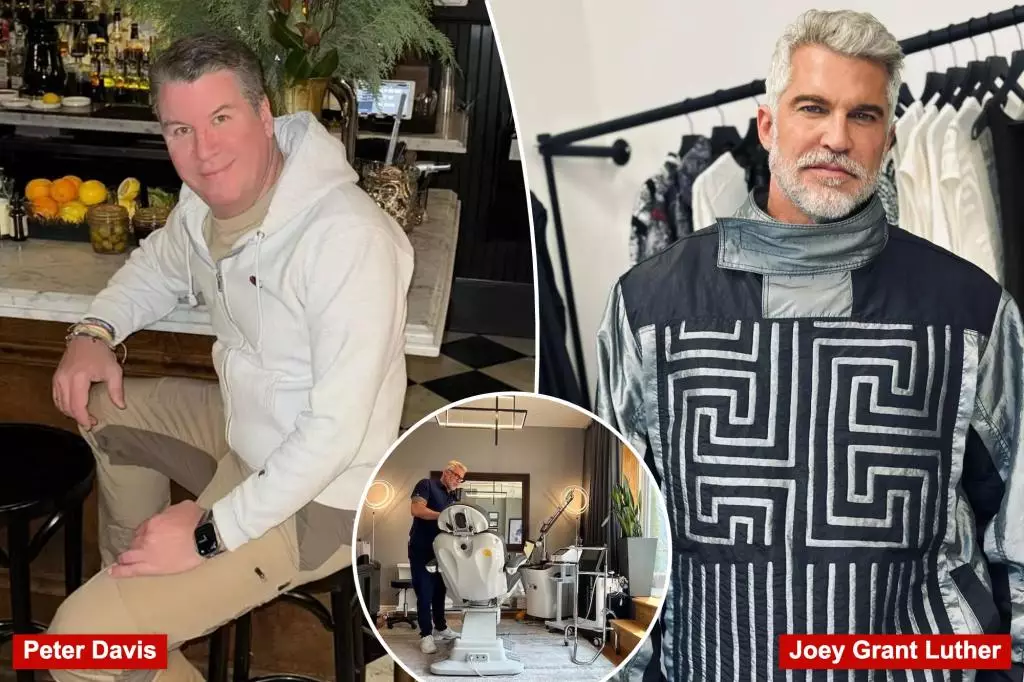The world of beauty and aesthetics has rapidly expanded over the past decade, with increasing numbers of individuals looking to enhance their features through cosmetic procedures. As demand grows, so does the potential for unscrupulous practitioners to capitalize on the desire for flawless looks. Recent headlines surrounding the arrest of skin doctor Joey Grant Luther have cast a glaring spotlight on this dark underbelly, revealing not just individual misdeeds, but a troubling trend where patients prioritize savings over safety.
Dr. Luther, who operated a spa known as JGL Aesthetics, was implicated in administering counterfeit Botox sourced from China. While many may dismiss such incidents as isolated, they represent a broader issue within the cosmetic industry where regulation and oversight often lag behind the rapid proliferation of new techniques and treatments. Clients, lured by the promise of cheaper services and stunning results, may find themselves in potentially life-threatening situations as they unknowingly place their health in the hands of unqualified individuals.
The impact of Dr. Luther’s actions extends well beyond his immediate clientele. With reports of alarming side effects, including hospitalizations due to botulism—a rare but potentially fatal illness—it’s clear that the ramifications of these deceptive practices are severe. Beyond the physical effects, psychological ramifications also surface; former clients now find themselves grappling not only with their health but with feelings of betrayal and confusion regarding the safety of aesthetic procedures.
Social media has become a breeding ground for discussions on the fallout from Dr. Luther’s actions, with a group chat formed by his former patients, humorously dubbed “Former Lutherans.” This support network serves as a coping mechanism, allowing individuals to connect, share their stories, and seek advice on finding legitimate practitioners. Personal testimonies from former clients illustrate the growing distrust in the beauty industry—highlighting how a simple desire for aesthetic enhancement can unravel into a nightmare.
In a recent issue of Avenue magazine, editor-in-chief Peter Davis shared his experiences as a former patient of Luther. Reckoning with the gravity of his decisions, he humorously remarked on the miraculous state of his face post-treatment, a grim contrast to the terrifying symptoms cataloged by other clients. These experiences expose a critical issue: many patients are often blinded by the allure of affordability, ignoring red flags that indicate a lack of legitimacy.
Davis pointed out peculiarities that should have raised alarms: the unorthodox setting of an apartment posing as a medical spa and the unsettling preference for payment via Venmo. These missteps underscore an unfortunate reality—too often, individuals seeking cosmetic enhancements are lulled into complacency by attractive price points and the superficial charm of practitioners, neglecting thorough backgrounds checks or consultations.
The repercussions of Luther’s actions are particularly felt within the LGBTQ+ community, which constituted a significant portion of his clientele. With influential clients coming forward, an atmosphere of fear and uncertainty has permeated social circles. This situation raises ethical questions about the responsibility of both service providers and clients in navigating the aesthetics landscape.
Moreover, the potential for harm to not only physical wellness but also mental health should not be overlooked. The shame associated with seeking remedies after being subjected to such deceit breeds a culture of silence that can dissuade victims from coming forward. As the industry continues to grow, the call for stricter regulations becomes increasingly urgent to safeguard patients against predatory practitioners.
As stories like that of Joey Grant Luther emerge from the beauty sector, they serve as a cautionary tale about the importance of diligence in choosing cosmetic services. While the allure of quick fixes and budget-friendly options can be tempting, awareness and education are paramount. Patients must be encouraged to prioritize safety over savings by seeking certified practitioners and reporting suspicious activities.
In light of this incident, there is a pressing need for the aesthetic industry to evolve, enacting measures that ensure client safety and trust. As former patients group together to navigate their traumas, it is crucial for a renewed emphasis on transparency, legitimacy, and ethical practices to prevail. The quest for beauty should never come at the peril of one’s health; it’s time for the industry to reflect on its values and stand for integrity in all aspects of care.

